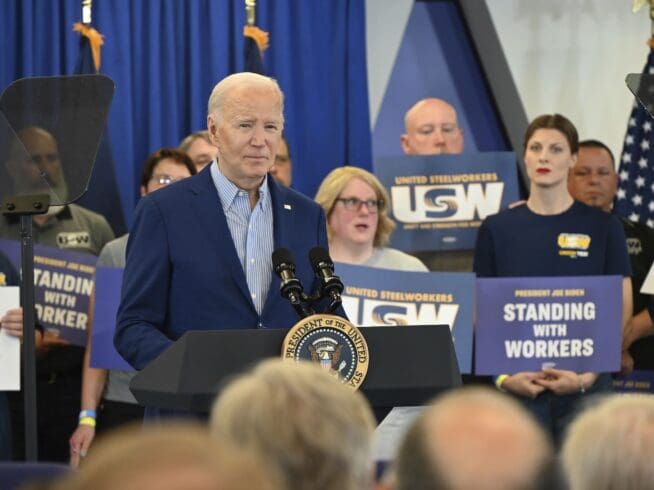FOIA expansion bills could help Michigan improve government transparency
Bipartisan legislation would open the state Legislature and governor’s office to Freedom of Information Act requests.

Michigan has long been considered one of the worst states in the country in government transparency.
The state’s lax Freedom of Information Act law has enabled an environment in which political corruption can be easily swept under the rug. Under a set of bipartisan bills in the Michigan Senate, the state may be getting closer to shining light on state officials’ activities and their special interests.
On March 13, the Senate Oversight Committee reported Senate Bills 669 and 670 to the Senate floor to be voted on by the entire chamber.
The bill package would modify the definition of a public body under the state’s FOIA law to include the legislative and executive branches of state government so that they would have to provide information upon request. A FOIA coordinator role would be created in the Senate and the House of Representatives to oversee the information requests.
Currently, Michigan’s Freedom of Information Act allows the public and journalists to request records from publicly funded bodies, including cities, police departments, and state agencies, but not the Legislature or the governor’s office.
Since the law was enacted in 1977, the state Legislature and governor’s office have been exempt from its definition of a public body. This means that state lawmakers, the governor and the lieutenant governor aren’t required to provide official documents or communications that show how they make decisions that impact the state.
At a Senate Oversight Committee hearing in February, supporters of the new legislation testified that the bills’ provisions would improve Michigan residents’ trust in public officials.
“The decisions made here impact every aspect of our lives for better or for worse,” said Kim Murphy-Kovalick with the advocacy group, Voters Not Politicians. “This policymaking process is shrouded in secrecy, and we the people deserve to know who is influencing policy decisions and why some policies move forward while others stall.”
Michigan is one of two states that exempt these offices from state FOIA laws; the exemption earned the state an F grade in government transparency from the Center for Public Integrity in 2015.
“We have to catch up to almost the rest of the nation, where journalists and residents alike can serve as watchdogs over their government,” said Sen. Jeremy Moss. The Southfield Democrat is co-sponsoring the legislation along with Sen. Ed McBroom, a Republican from Vulcan.
Moss and McBroom have worked together on the FOIA expansion legislation since 2015, when they were members of the state House. The bills were tweaked as the years went on and the legislation was stalled in the GOP-led Legislature. The pair’s repeated attempts to pass the bills gained more steam with every new legislative session, Moss said, but it might be a real possibility this year with the Democratic majority in charge.
“We’ve all endured over the last several years here from this Legislature ethical questions at best and criminal activity at worst that have made headlines across our state,” Moss said. “Those actions from bad actors were only made possible by the dark areas in our law in which they could exist.”
Former GOP House Speaker Rick Johnson is one recent example of a public official who used his political influence for his own financial gain. Johnson was sentenced to federal prison in September for accepting bribes from lobbyists when he served as chairman of the now-defunct Michigan medical marijuana licensing board. Another former GOP House speaker, Lee Chatfield, is the subject of an ongoing investigation by Democratic Attorney General Dana Nessel’s office for allegedly engaging in “criminal enterprise,” according to the Detroit News.
If it were to become law, any records created before the legislation’s effective date would be excluded. The bill also excludes communications between a lawmaker’s office and a constituent, which has worried some people.
Sen. Mallory McMorrow, a Democrat from Royal Oak, said she’s had constituents who have willingly sent official documents like birth certificates and Social Security numbers when reaching out to her office for help. She cautioned the panel that people may feel that their personal information could be made available to the public if they contacted a legislator, which could turn them away from reaching out entirely.
On the other hand, Lisa McGraw of the Michigan Press Association said that the exemptions for constituent communications in the bill language is too broad and that there’s room to narrow it down.
“We’re not really clear on why that’s necessary and are concerned about unintended consequences with regard to them,” McGraw said.
The bill package still needs to be voted on by the Senate before it can move to the House for further review. McBroom said the most important step forward is to make sure that the FOIA reform is implemented and that future lawmakers can revise the bills down the road if they need to.
“I think that what we’ve crafted here can hold up, but it’s going to take very careful implementation and execution as well,” he said.
Gov. Gretchen Whitmer made a campaign promise when she was running for governor in 2018 that she would increase government transparency if elected. A spokesperson for the governor was not willing to go on the record when asked by the Michigan Independent whether Whitmer has any concerns about the bill package or whether she intends to sign it should it reach her desk.
Moss said Whitmer’s office has continued the negotiations with legislators that started with former Republican Gov. Rick Snyder — primarily over the list of exemptions — to get the legislation past the finish line.
“This is something that is going to have to be a discussion for all of us to have,” Moss said. “I’ve been open to ideas to strengthen it, and if it can withstand scrutiny, let’s move it forward.”




